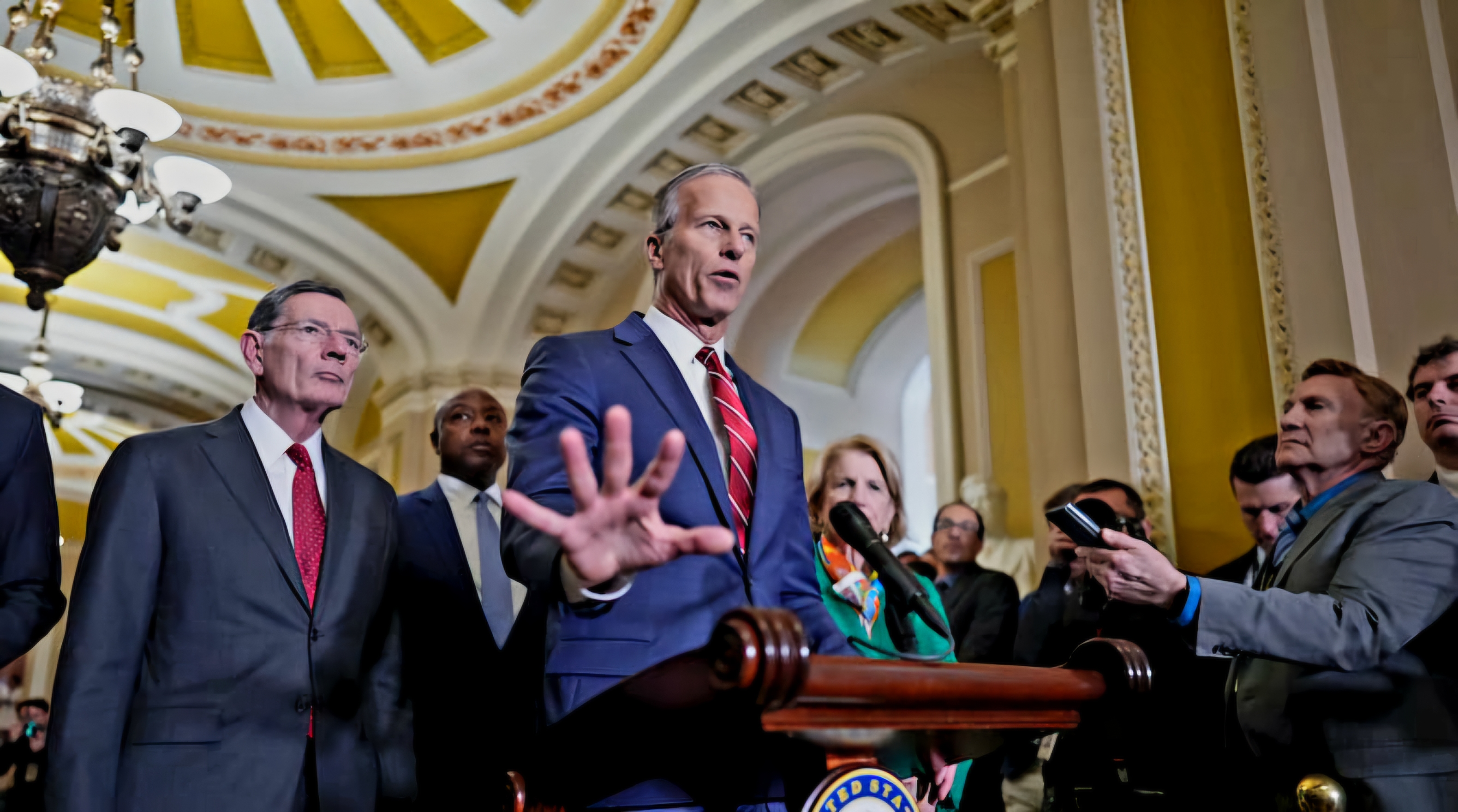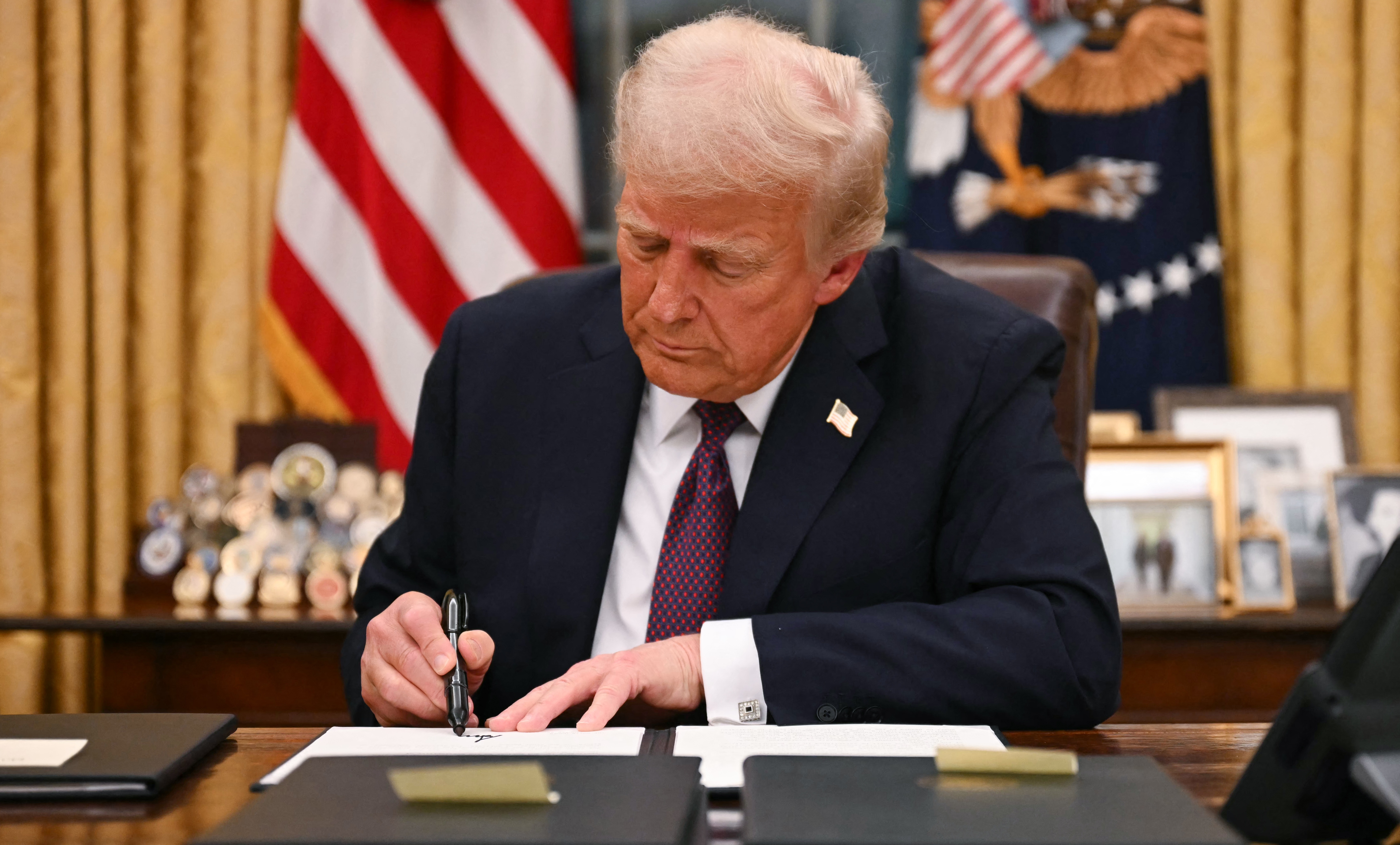Republican Senators Chart Course for Trump's Tax Cuts: A Move Towards Fiscal Transformation
- by Mike Morris, RNG247
- about 7 months ago
- 121 views

In a defining moment for fiscal policy, the U.S. Senate approved a Republican budget blueprint in the early hours of Saturday morning, aiming to extend the tax cuts enacted under President Donald Trump in 2017 and significantly curtail government spending. The crucial vote, which came in at 51-48, marked a pivotal step toward advancing Trump's fiscal agenda, effectively deploying a strategy known as budget reconciliation. This maneuver allows Republicans to circumvent the Senate's filibuster—typically requiring a supermajority of 60 votes for most legislation— and push forward on Trump’s tax, border security, and military priorities with only Republican support.
Senate Budget Committee Chairman Lindsey Graham heralded the vote as a breakthrough for the American public, stating, "Tonight, the Senate took one small step toward reconciliation and one giant leap toward making the tax cuts permanent, securing the border, providing much-needed help for the military, and finally cutting wasteful Washington spending."
However, the measure encountered some opposition from within the party, as two Republicans—Senators Susan Collins and Rand Paul—sided with Democrats in opposing the legislation. The bill will next move to the Republican-controlled House of Representatives, where it is anticipated to come up for discussion next week.
Non-partisan analysts project that implementing the Trump agenda could inflate the federal government’s debt by approximately $5.7 trillion over the next decade. In contrast, Senate Republicans argue the measure's cost to be around $1.5 trillion, justifying that the effects of extending current tax policies—due to expire at year’s end—should not be included in the cost analysis.
Additionally, the approved measure seeks to elevate the federal debt ceiling by $5 trillion, a necessary action Congress must take by summer to avoid defaulting on the staggering $36.6 trillion in national debt. To mitigate the financial impact of tax cuts on the deficit, the proposal would aim to cut government spending. Democrats have voiced strong concerns that these proposed spending cuts could severely threaten the Medicaid program, which provides health insurance to low-income Americans.
Republicans have warned that allowing the 2017 tax cuts to lapse would lead to significant tax hikes for the American populace, with an estimated 22% increase impacting the average taxpayer. Notably, the corporate tax rate, which was reduced from 35% to 21% as part of Trump’s legislation, is not set to expire; however, the temporary nature of individual tax cuts was designed to limit the bill's overall deficit-increasing potential.
Reacting to the outcome, Senate Democratic Leader Chuck Schumer expressed his indignation, saying, "Donald Trump has betrayed the American people. Tonight, Senate Republicans joined him in that betrayal. In voting for this bill, Senate Republicans sided with billionaires against the middle class, in total obeisance to Donald Trump."
The debate over the budget blueprint has been further complicated by a tumultuous stock market sell-off, triggered by Trump's new trade tariffs—measures that many economists warn could escalate prices and potentially lead to a recession. As the nation braces for the ramifications of these policy changes, the road ahead for both the Senate and the American economy remains fraught with uncertainty and contention.
















0 Comment(s)